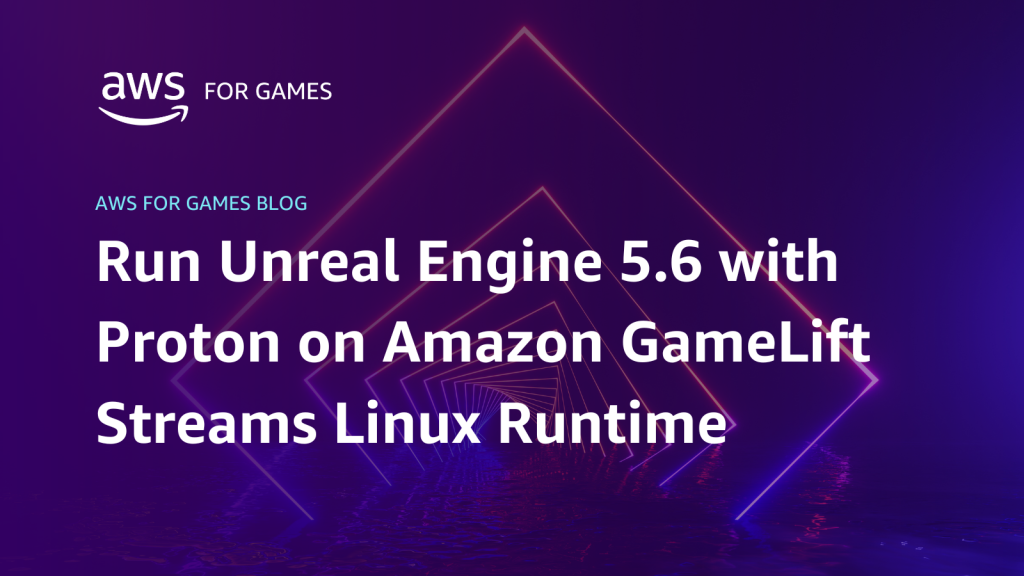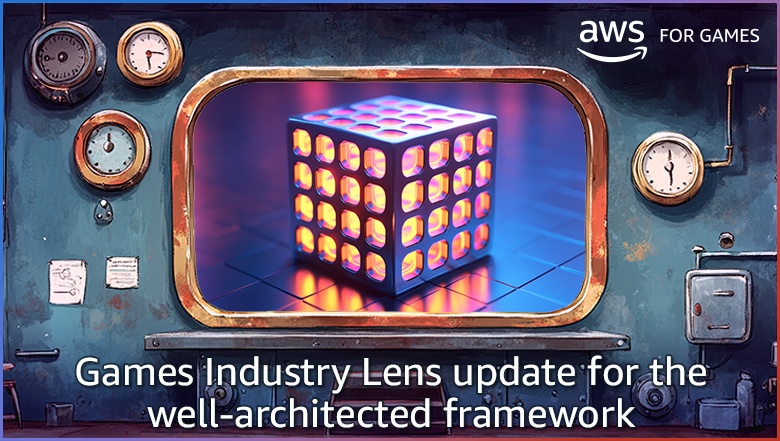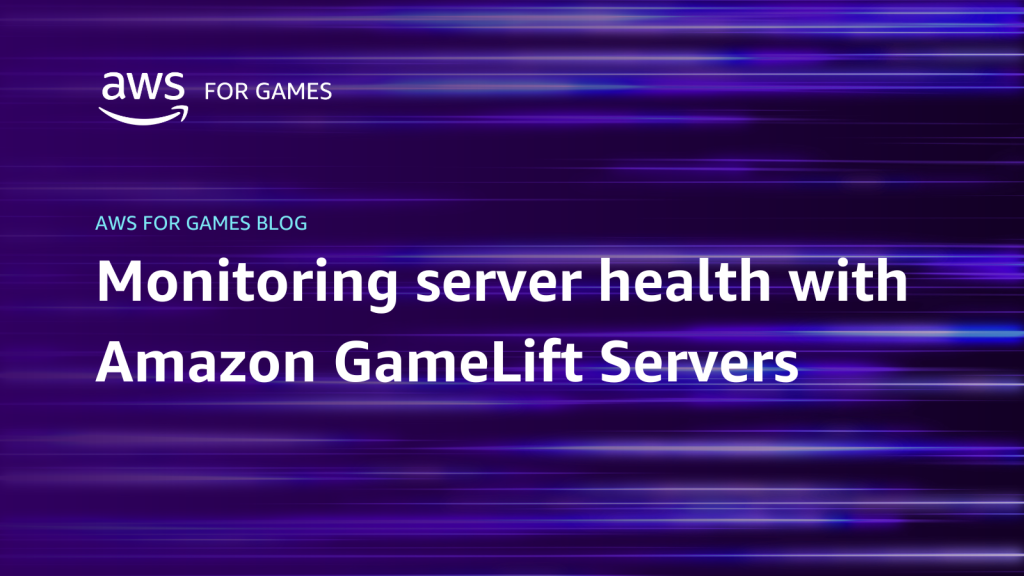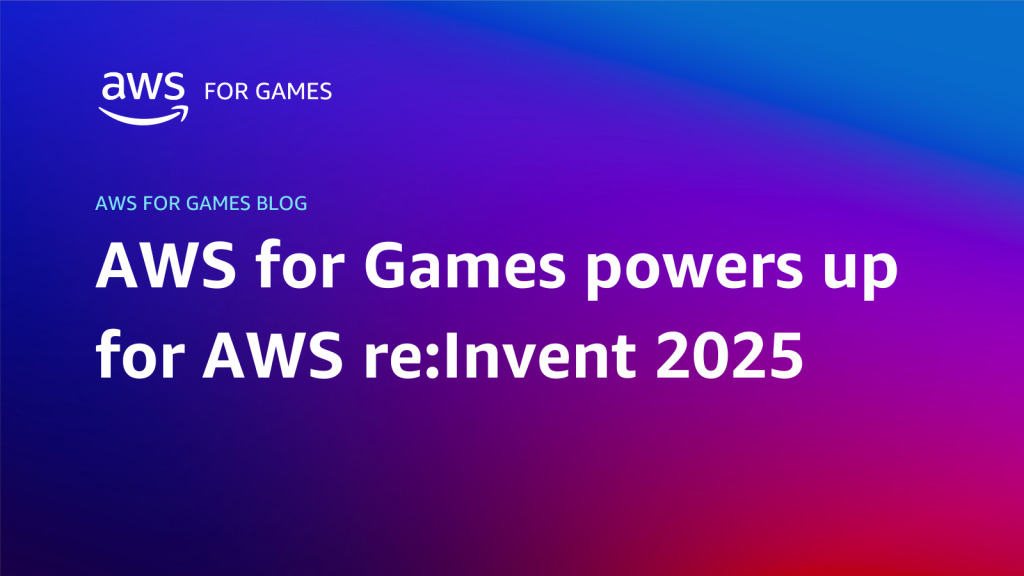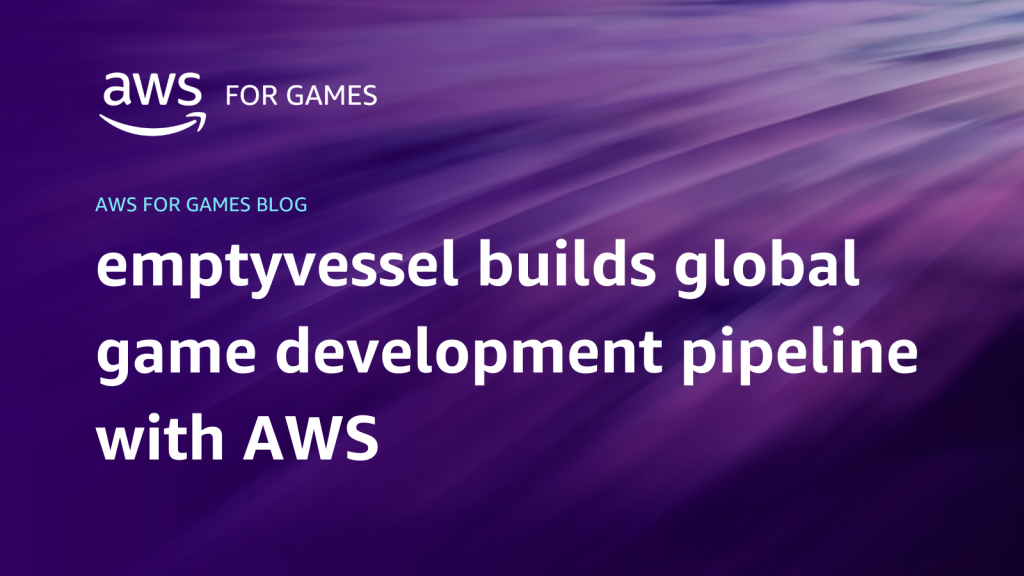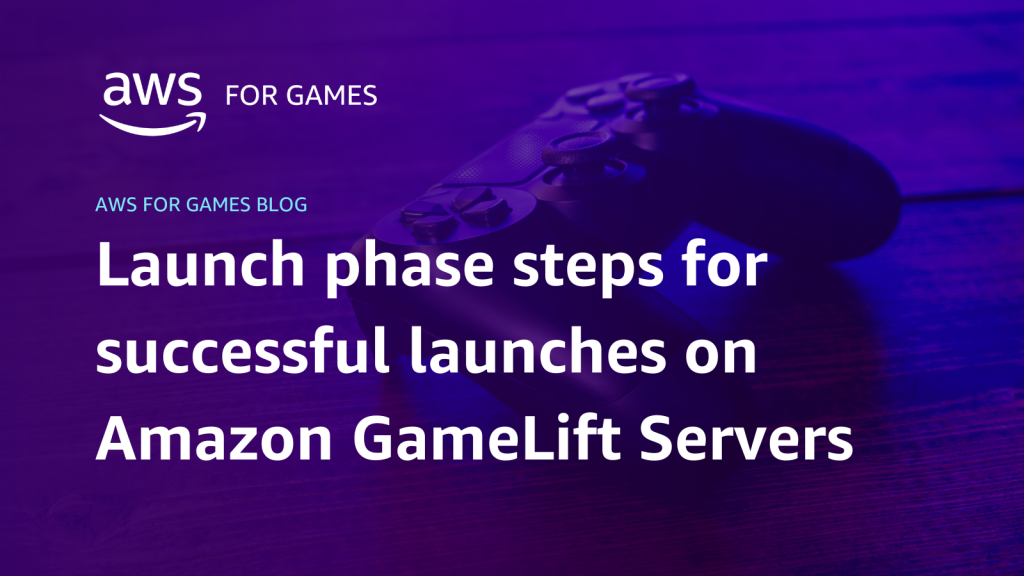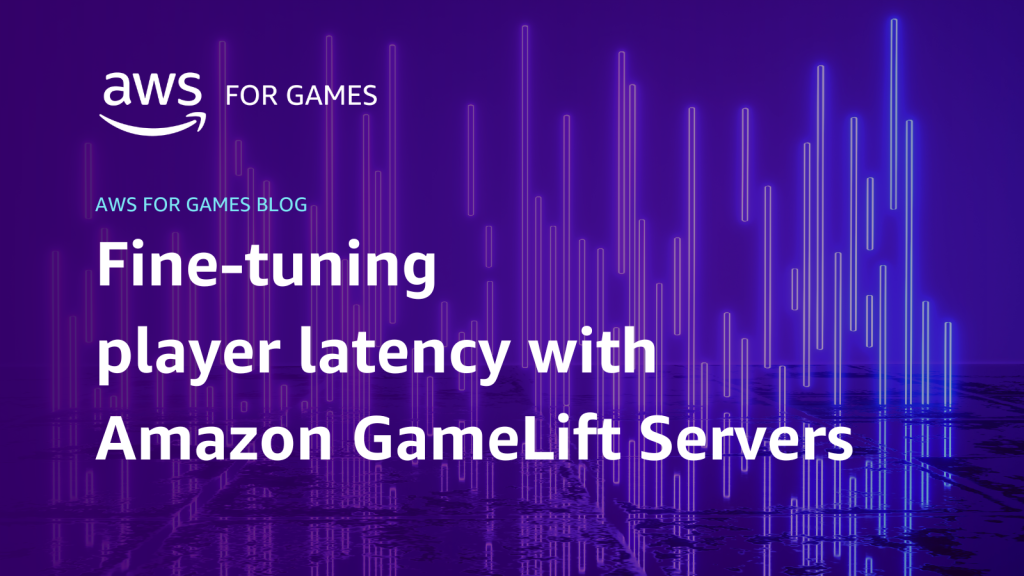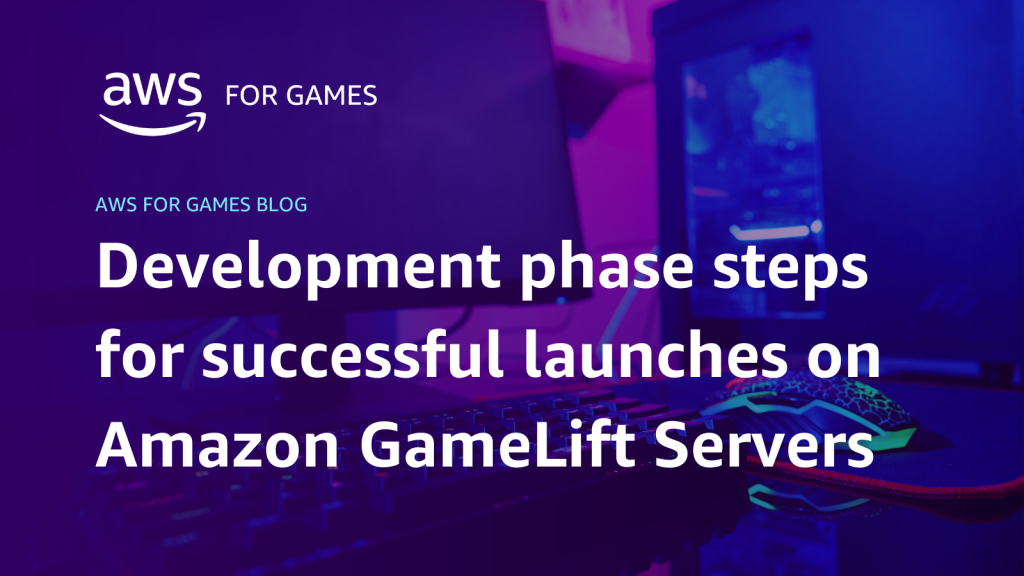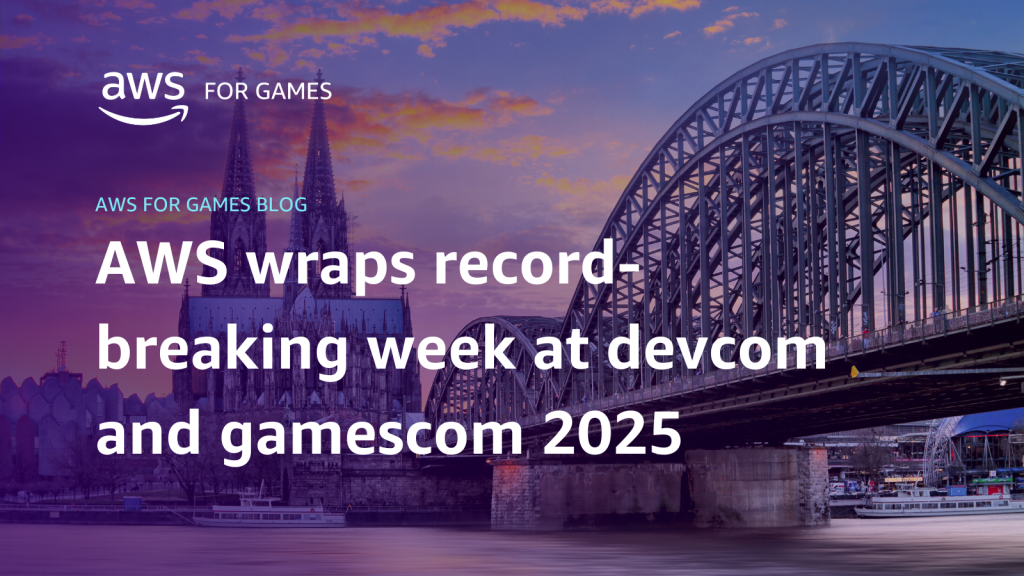AWS for Games Blog
Category: Amazon GameLift
Build interactive experiences with data channels in Amazon GameLift Streams
When streaming games on Amazon GameLift Streams, players expect a seamless experience. Even though the web client and streamed application are separate entities, the user experience should feel as if everything is native. While game inputs (such as keyboard and mouse controls) are automatically handled, the separation between the streamed application and the native browser […]
Run Unreal Engine 5.6 with Proton on Amazon GameLift Streams Linux Runtime
If you are looking to run a Windows game based on Unreal Engine 5.6 or newer, it currently isn’t compatible with the available managed Proton runtimes on Amazon GameLift Streams. Instead, you can run the same Unreal Engine game with a compatible version of Proton by using the Linux Runtime option on Amazon GameLift Streams. […]
Games Industry Lens update for the well-architected framework
As the gaming industry and live service games continue to grow, cloud services play a critical role in delivering immersive experiences to millions of players. Game development teams across the globe leverage Amazon Web Services (AWS) infrastructure to build, test and grow games. They strive to build analytics and gain player insights to drive development […]
Monitoring server health with Amazon GameLift Servers
Running a successful multiplayer game means constantly balancing performance, scale, and player experience. As your player base grows, new challenges emerge. The causes could be any one of a variety of different problems. Perhaps it’s something in your server code. There could be a memory leak, inefficient logic, or a bug that only surfaces under […]
AWS for Games powers up for AWS re:Invent 2025
AI and cloud advancements have redefined how games are created, distributed, and experienced. Prepare to dive deep into the latest advancements for developers, publishers, and players from Amazon Web Services (AWS) for Games at AWS re:Invent 2025 in Las Vegas. Register to secure your spot. Kicking off Monday, December 1, the five-day conference features a […]
emptyvessel builds global game development pipeline with AWS
This blog post was co-authored by Garrett Young, General Manager and COO of emptyvessel and Wei Ning, CTO of emptyvessel. In the high-stakes world of game development, success hinges on seamless collaboration across time zones and lightning-fast development cycles. For one ambitious studio creating a next-gen cyberpunk shooter, Amazon Web Services (AWS) became the catalyst […]
Launch phase steps for successful launches on Amazon GameLift Servers
When a game goes viral being set up for success from the start is vital. This post covers important areas of consideration when launching a multiplayer game on Amazon GameLift Servers. We will focus on activities required 2-3 months prior to your game launch. This can be your full public launch of the game, but […]
Fine-tuning player latency with Amazon GameLift Servers
If you’ve launched an online multi-player game, you’re aware that few things are as frustrating (and perhaps inevitable) as forum complaints about latency. It can often be challenging to separate issues which you can influence (proximity of servers or code optimization) from problems outside of your control (under-sized hardware or network issues on the player […]
Development phase steps for successful launches on Amazon GameLift Servers
You’re developing a multiplayer game, but aren’t certain about how to efficiently host, scale, and monitor the game server fleet globally. You’re also thinking about how to place sessions efficiently around the world for the best player experience. Building the required infrastructure from scratch can be overwhelming. We recommend Amazon GameLift Servers, a fully managed […]
AWS wraps record-breaking week at devcom and gamescom 2025
Impressive turnout at the devcom developer conference and gamescom this year underscored a thriving video game industry. Held in Cologne, Germany, both events reported record-breaking attendance for 2025, with developer-centric devcom receiving 5,400 visitors and consumer-focused gamescom attracting 357,000 attendees. The Amazon Web Services (AWS) for Games team was out in full force, hosting insightful […]

